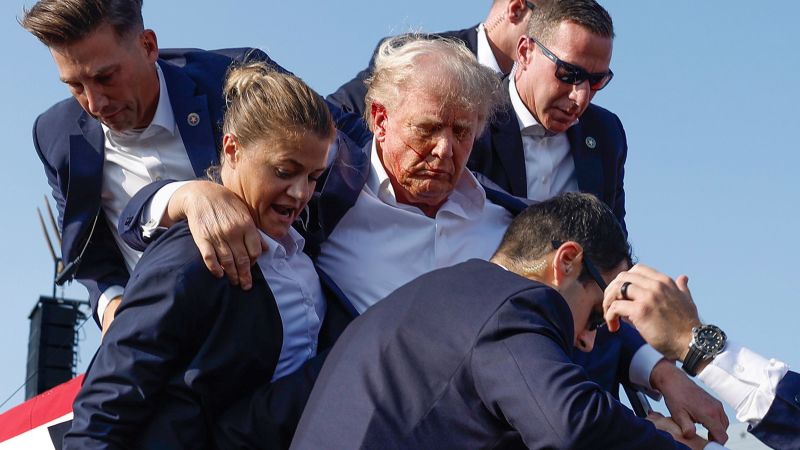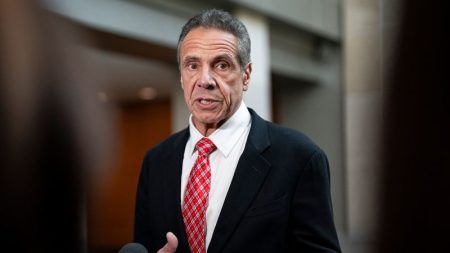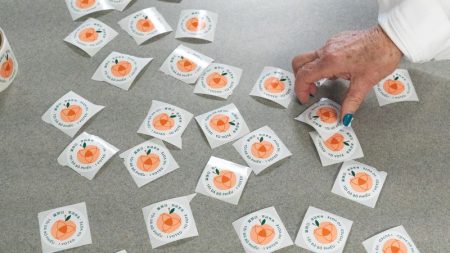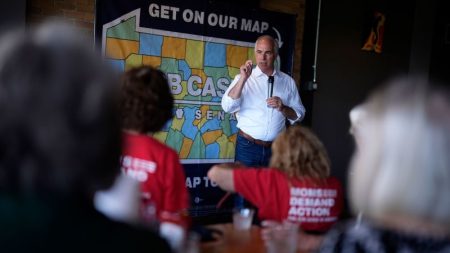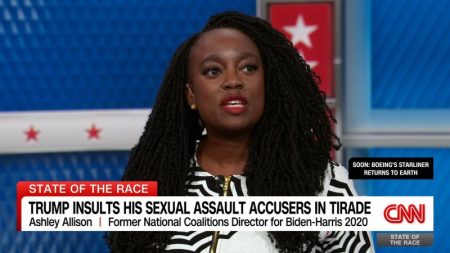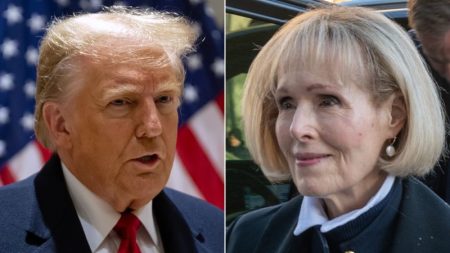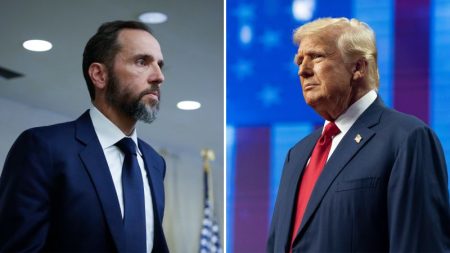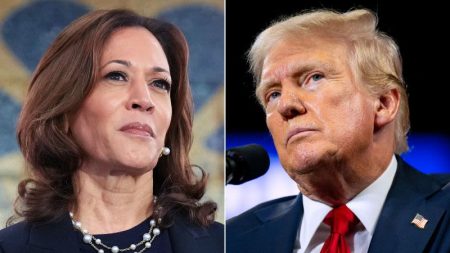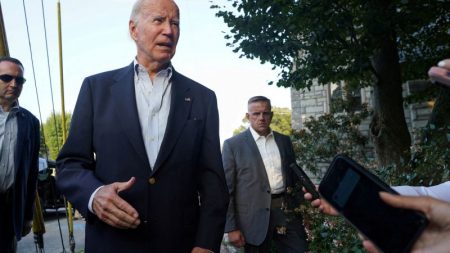One minute before former President Donald Trump’s motorcade rolled onto the site of his now infamous rally in rural Butler, Pennsylvania, a local SWAT officer stationed in a nearby building peered down from his second-floor perch and saw a young man pull something out of his pocket.
The officer, Greg Nicol, zoomed in with his binoculars and saw that the skinny young man with long hair and glasses was holding a rangefinder, a device used by shooters to calculate the distance to a target. He had it pointed directly at the stage where Trump was about to speak.
“This just isn’t right,” Nicol recalled thinking in a recent interview with CNN. When the mysterious young man disappeared a short time later, his instinct told him something else: “I gotta find this dude.”
In his most comprehensive public statements to date, Nicol, as well as several of his colleagues who spoke to CNN, shared new details about what they described as poor planning for the rally, a dramatic communication breakdown between local police and the Secret Service, and bitter finger-pointing in the aftermath of what is widely seen as a massive law enforcement failure.
Nicol’s sighting of Thomas Matthew Crooks with the rangefinder was a pivotal moment that began a ticking clock to possibly apprehend the 20-year-old would-be assassin before he somehow made his way onto a rooftop with an AR-15 style firearm and came perilously close to killing the former president.
“Could it have been avoided? Absolutely,” said Det. Pat Young, commander of the Beaver County SWAT team and Nicol’s boss. “And should it have been avoided? Yeah, absolutely.”
Days before Trump stepped onto the stage at his July 13 rally at the Butler Farm Show grounds, about an hour north of Pittsburgh, the Secret Service began implementing a plan to protect him. As with other such events, the plan relied, in part, on help from local law enforcement.
In this case, that meant dozens of police officers, sheriff’s deputies, state troopers, paramedics and others, stationed in various areas emanating outward from the stage where Trump was to speak.
A pair of Secret Service counter snipers, dubbed Hercules 1 and Hercules 2, surveilled the crowd from directly above and behind the stage. Other snipers from local SWAT teams in Butler and surrounding counties took up positions in a grandstand and, in Nicol’s case, on the second floor of a building on the sprawling campus of a company called American Glass Research. One of the AGR buildings was roughly 150 yards from the stage where Trump would later speak, but outside the perimeter established by the Secret Service.
Following a general briefing that morning by a law enforcement official from Butler County, where the rally was being held, Nicol said he and other snipers were assigned to be inside the AGR building and directed to several windows on the second floor with a view of the entry area to the rally grounds and the stage where Trump would speak.
A Butler sniper leader who met Nicol and his partners at the AGR building told them their mission was to look out those windows and scan the area for threats, Nicol said. They were instructed to remain covert. They set up their rifles on tripods so that the barrels were a foot or two inside the open windows to prevent them from being seen from outside.
For more than five hours, the three snipers – Nicol, a fellow SWAT team member from Beaver County named Jason Woods and a third shooter from Butler County’s SWAT team – remained hidden in their second-floor perch without incident.
At approximately 4:26 p.m., Woods was clocking out for the day. As he left, he saw someone sitting at a picnic table outside as he exited the building dressed in camouflage and carrying his gear. Woods texted his counterparts that their cover was blown.
“He knows you guys are up there,” Woods wrote. Authorities now believe that was the first time law enforcement placed eyes on Crooks.
Nicol thought little of the text at the time, he said. Nor did he immediately connect it to a slightly built, long haired young man he saw sitting below the window where he was stationed at AGR about 45 minutes later.
Something about the kid and his presence there didn’t seem right, Nicol thought. He couldn’t articulate exactly what that was, he said, but whatever he was feeling prompted him to take the young man’s picture at 5:14 p.m.
By this time, the Farm Show grounds were packed with Trump supporters, and the former president’s motorcade was 19 minutes away.
At 5:32 p.m., Nicol again looked down from a second-story window and saw the same kid. This is when he zoomed in with his binoculars and noticed the range finder. Instantly, his assessment of the young man was elevated from simply odd to potential threat.
Over the next 13 minutes, Nicol attempted to pass his concerns up the chain of command. He radioed the local command post controlled by Butler County law enforcement and notified them of the kid with the rangefinder. He also texted photos of the young man to one of his Beaver County bosses and suggested he forward the photos to someone in the local command post, which he did.
The Secret Service and Pennsylvania State Police were stationed at a separate command post nearby with which neither Nicol nor his Beaver County supervisor were able to directly communicate, he said. However, a transcript of Butler’s radio communications – first reported by the Washington Post – details a phone call from a Butler County commander to a state police officer relaying Nicol’s warning. The state trooper then conveyed the information to Secret Service agents also in the command post at approximately 5:44 p.m.
As the clock ticked toward Trump taking the stage, Nicol went from window to window on the second floor of the AGR building looking for the kid and wondering what was taking so long for help to arrive.
“I don’t see any patrolmen or anybody outside looking for him,” he told CNN. “It’s like, what is going on here?”
‘Coming and going and disappearing’
While Nicol scanned the crowd for Crooks, poor cell service further hindered law enforcement communication. “Units be advised internet and cell service is down,” an officer is heard saying at 5:48 p.m. on Butler’s radio. A minute later, a sheriff’s deputy radioed. “Your picture is probably not going to go through because I don’t have any service,” the Post reported.
Four minutes after that, the Secret Service counter sniper team leader emailed his teams that local law enforcement was looking for a suspicious individual outside of the perimeter, lurking around the AGR building.
Just after 6 p.m., Nicol, looking out a window on the northwest side of the building, spotted Crooks again. This time the young man was running and carrying a black backpack.
Instinctively, Nicol left his second-floor post and bounded down the stairs in an attempt to keep eyes on the suspect who seemed to be “coming and going and disappearing.”
When he pushed open the door, the kid was nowhere to be seen. Just then two police officers pulled up outside AGR and Nicol shouted to them about where he’d last seen the suspect. The officers took off on foot in opposite directions around the sprawling AGR complex.
Trump by this time was on stage and addressing the crowd. Nicol said he could hear his voice booming over the loudspeakers.
Video discovered by the FBI shows Crooks pulling himself onto the roof of the AGR building at around 6:06 p.m. Shortly thereafter, a local law enforcement officer reported over the radio, “Someone’s on the roof. I have someone on the roof with white shorts.” A Butler supervisor then passed the information to the Secret Service command post at 6:09 p.m., according to the transcript obtained by the Post.
The Hercules snipers covering Trump from above and behind the stage then turned to face the AGR property to the north. Almost simultaneously, an officer being boosted up to the roof saw the gunman, who spun around and pointed his rifle at the officer. Defenseless, the officer let go and dropped to the ground.
Seconds later, Crooks opened fire, striking Trump in the ear, killing one rally attendee and wounding two others. A Secret Service sniper then fatally shot Crooks.
Two days after the shooting, Young, the Beaver County SWAT team commander, called a meeting of all his officers who had been at the rally.
Young himself was off that day and raced to the scene after the gunman opened fire. In addition to Nicol and Woods in the AGR building, he had eight other officers there in various roles.
A veteran cop who did two tours in Iraq with the Army National Guard, Young took stock of what his team members had to say. While the outcome was no doubt tragic, he was confident his people had done their jobs and performed admirably.
Neither Young nor his officers, however, were prepared for the recriminations that followed.
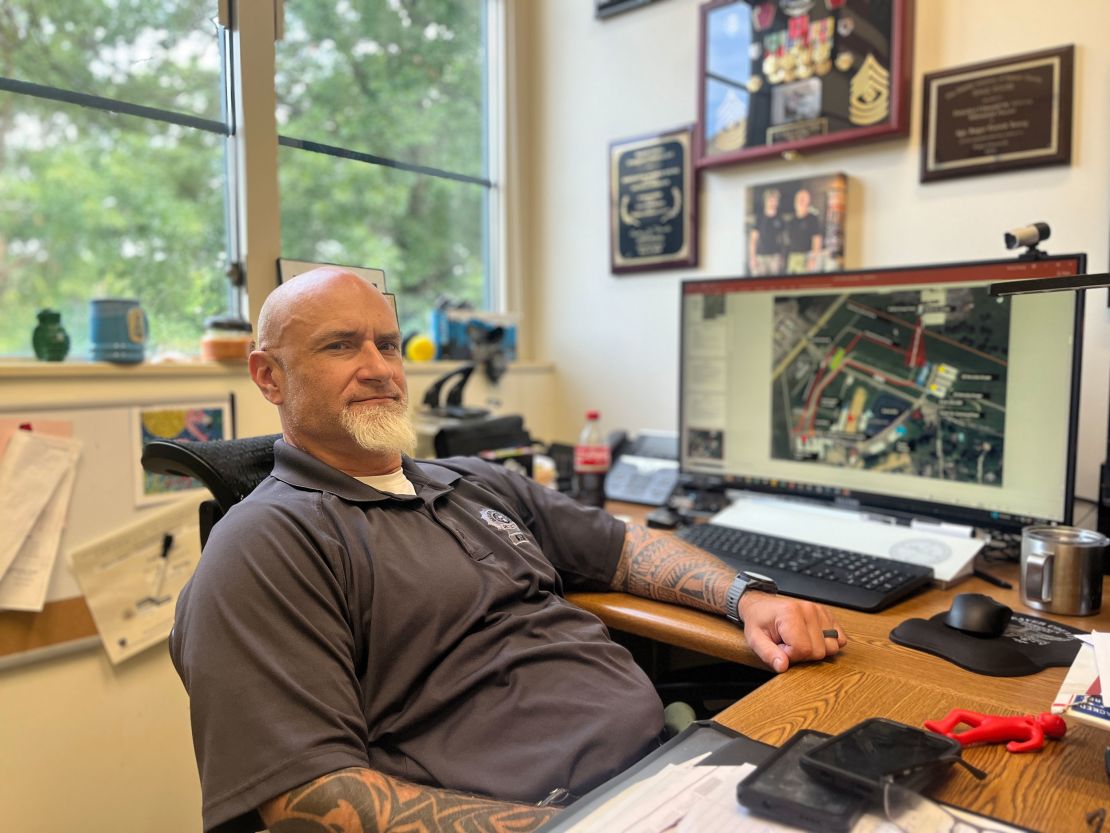
Secret Service directors, the Pennsylvania State Police Commissioner and lawmakers criticized local law enforcement’s actions during several high-profile congressional hearings. They said they assumed securing the AGR complex had been the responsibility of the local cops and falsely suggested officers didn’t want to be on the roof because of the heat that day. They claimed Nicol had abandoned his post and that the snipers inside the AGR building could have seen Crooks if they had been more vigilant.
The accusations prompted Young and the Beaver County District Attorney, Nate Bible, to come to their officers’ defense. In a July interview with ABC, they first shared some of their frustrations about the poor planning and siloed communications in the lead up to and during the event.
In interviews with CNN, Nicol and Woods said they had expected more thorough instructions from the Secret Service and complained about a lack of clarity about the full security plan. The snipers said they never spoke directly to Secret Service agents in preparation for the event – and had not been asked to share their accounts, despite playing a pivotal role in identifying the threat.
On Friday – nearly four weeks after the attack – Young said he finally received notice from the Secret Service that investigators wanted to interview him and his officers.
“I can’t believe that the Secret Service hasn’t talked to any of our people,” he said prior to Friday’s reach out. He said he wanted to iron out what went wrong in Butler as his county is already fielding requests for future campaign events.
Some of the failures, officers said, have become painfully obvious in the wake of the shooting. Most of all, perhaps, the need for better inter-agency communications.
On one end of the fairgrounds, Butler County occupied a command center from which they could communicate with their own officers and the teams from Washington and Beaver County that supported them during the rally. In a different location, the Secret Service and state police set up another command post. Local law enforcement officers, however, couldn’t directly communicate with state troopers or the Secret Service. Even Butler’s command at times had to use personal cell phones to contact state and federal agents – a problem on a day when cell service was unreliable due to the number of people in the area.
Another source of frustration revolved around plans for the AGR site itself, located outside of the perimeter established by the Secret Service. Nicol said he and Woods assumed patrol officers would protect access to the building because, as snipers inside, they would not be able to see, or immediately follow, someone close to the building.
But that didn’t happen.
Nicols, Woods, Young and other Beaver County officers weren’t the only ones to express concerns about the Secret Service planning.
Body cam footage released this week by the Butler Township Police Department, shows an officer responding to the AGR property in the minutes after Crooks opened fire complaining that he had urged the Secret Service to post an officer there several days before the Trump rally.
“I f**king told them,” the officer says, according to the video released in response to a public records request from CNN. “I talked to the Secret Service guys. They were like, ‘Yeah, no problem,’” the officer adds.
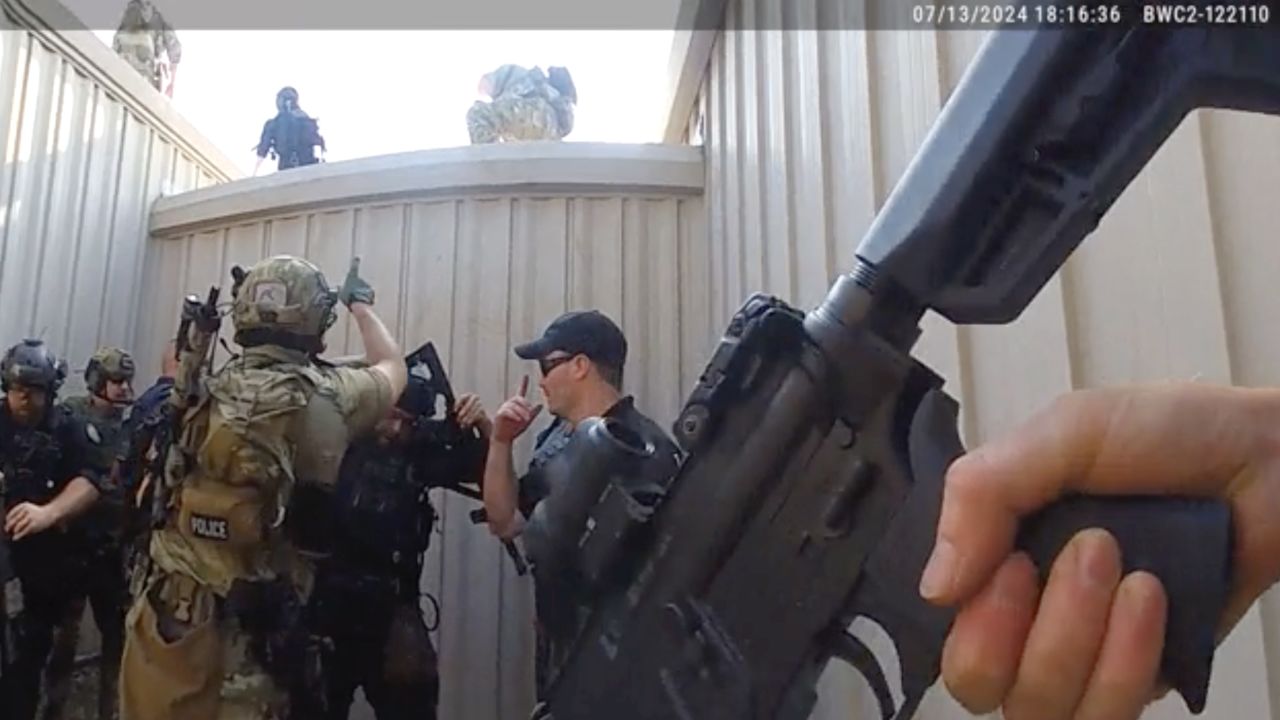
Bodycam footage released by Butler Township Police shows response to Trump shooter
Amid multiple ongoing inquiries into what the former Secret Service director acknowledged was the worst operational failure in decades, agency officials have backed off their earlier criticism of local law enforcement and have accepted full responsibility for not preventing the attack on Trump.
In a statement released Thursday in response to the bodycam footage, Secret Service spokesman Anthony Guglielmi said the agency “appreciates our local law enforcement partners, who acted courageously as they worked to locate the shooter that day.”
“The attempted assassination of former President Donald Trump was a U.S. Secret Service failure, and we are reviewing and updating our protective policies and procedures in order to ensure a tragedy like this never occurs again,” Guglielmi said.
Read the full article here
